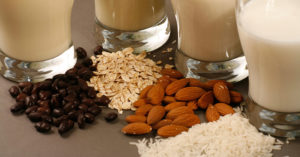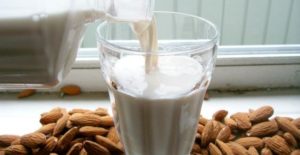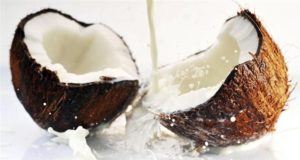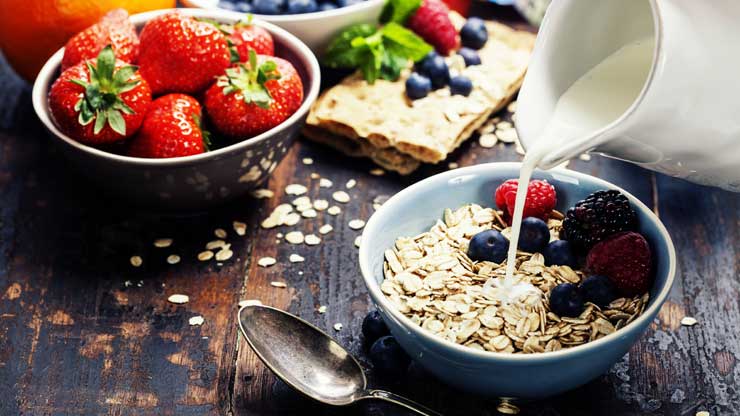As we have already said in our previous articles (e.g. http://www.oipa.org/international/milk-the-liquid-meat/), milk cannot be considered as that one complete aliment, nutritionally indispensable for human beings. Otherwise, with the main exception of breast milk for new-borns and babies, no type of milk is fundamental for the wellness of one’s life. Actually, in particular in the western world, we are the only species of mammals that continues to feed itself with another species’ milk, even after the weaning. Milk is one of the most used food: form breakfast to the snack break, to realize sweets like pies or biscuits… and it is used to reheat leftovers from the day before, too!
 Data can show us something: 70% of the world population is not able to digest milk, while another considerable percentage found more or less serious problem in consuming it, such as abdominal swelling, diarrhoea, cramps and flatulence. And even those who can tolerate it, it is surely not a useful and healthy food, due to the high level of dangerous substances, like fat and cholesterol, not to mention it is one of the major causes of the loss of calcium from the bones. In the last fifty years, the culture of drinking milk become so rooted that is now difficult to remove it… anyway, it is possible to substitute this food with other drinks. Drinks that are healthier for us, more ethical towards animals and with a much lower environmental impact, as shown by the 2008 research of the German association of consumers Foodwatch[1].
Data can show us something: 70% of the world population is not able to digest milk, while another considerable percentage found more or less serious problem in consuming it, such as abdominal swelling, diarrhoea, cramps and flatulence. And even those who can tolerate it, it is surely not a useful and healthy food, due to the high level of dangerous substances, like fat and cholesterol, not to mention it is one of the major causes of the loss of calcium from the bones. In the last fifty years, the culture of drinking milk become so rooted that is now difficult to remove it… anyway, it is possible to substitute this food with other drinks. Drinks that are healthier for us, more ethical towards animals and with a much lower environmental impact, as shown by the 2008 research of the German association of consumers Foodwatch[1].
All types of vegetable drinks may be used for a traditional breakfast, and as an alternative to cow’s milk in the preparation of food and sweets. As for cow’s milk, the consumption should be moderate (125-250 cc per day). It is always advisable to consume it as natural as possible, in order to try to limit the products with the addition of sweet flavouring substances. The major part of those drinks are added with calcium, vitamin D and vitamin B12, which are useful if the intake of one’s diet has a limited assumption of these nutrients. All the different kinds of “vegetable milks” are easily available in all supermarkets, even if it is advisable to give a preference to the biological ones, which are less likely to present added fats (usually absent in soy and almond milk) and with a lower percentage of sodium.To be sure of the genuineness of the drink and to obtain substantial savings… you can easily auto-produce it! On the web, there are different recipes that can be followed even by those who usually burn foods using the microwave oven. Among the most famous “vegetable milks”, it is possible to find:a.
Soymilk: a viable alternative to cow’s milk, especially in those who have risk factors for atherosclerosis, since soy reduces cholesterol – LDL. Moreover, the Adventist Health Studies shows how Adventist males consuming soymilk have a reduced incidence of prostate cancer. Nutritionally similar to cow’s milk is the milk plant less caloric and richer in protein. It contains polyunsaturated fats, fibres, vitamins A, B, E and minerals, such as iron.b.
 Rice milk: rich in simple sugars, provides readily available energy. The least amount of protein of this milk is definitely not a problem as part of a vegan balanced diet that finds proteins in other foods (see: http://www.oipa.org/international/vegetable-proteins/). It is the drinks with less fats, while mainly contains polyunsaturated fats, as well as fibres, vitamin A, B, D, minerals.c.
Rice milk: rich in simple sugars, provides readily available energy. The least amount of protein of this milk is definitely not a problem as part of a vegan balanced diet that finds proteins in other foods (see: http://www.oipa.org/international/vegetable-proteins/). It is the drinks with less fats, while mainly contains polyunsaturated fats, as well as fibres, vitamin A, B, D, minerals.c.
Oat milk: It is a viable alternative to cow’s milk, especially in those with atherosclerosis problems because oats reduces LDL – cholesterol. It is a little calorie milk and with a limited fat content, mainly polyunsaturated fats, while contains fibres, vitamin E and folic acid.Rich in simple sugars provides readily available energy.d.
Almond milk: it has the most delicious and sweet taste, anyway it cannot be used as a substitute for the infants’ breast milk. Even if it can be used for breakfast and for the production of other foods, usually this type of milk constitutes an alternative to the assumption of dried fruit. The only limit is bound with the common sense and the high calories that almonds have. These dried fruit contains polyunsaturated fatty acids, antioxidants and calcium, fibres, proteins, vitamin E and minerals.e.
 Coconut milk: source of minerals, in particular antioxidants such as selenium, magnesium, and micronutrients like iron, potassium and zinc; vitamins, as C and E; contains “good fats” that help reducing the level of cholesterol – LDL; and it calms the gastro-oesophagus reflux. Therefore, there are different type of drinks that can substitute cow’s milk. Moreover, for every single type, there are different brands… It might be difficult, because the choice is wide and it is important to search for the best taste and the better drinks for one’s health, but it is important not to give up. OIPA supports a vegan diet http://www.oipa.org/international/veg/ as the only possibility for the entire world to grow, to reduce the hunger and the poverty and to realize a more correct society, where animals will be treated as living and sentient beings.
Coconut milk: source of minerals, in particular antioxidants such as selenium, magnesium, and micronutrients like iron, potassium and zinc; vitamins, as C and E; contains “good fats” that help reducing the level of cholesterol – LDL; and it calms the gastro-oesophagus reflux. Therefore, there are different type of drinks that can substitute cow’s milk. Moreover, for every single type, there are different brands… It might be difficult, because the choice is wide and it is important to search for the best taste and the better drinks for one’s health, but it is important not to give up. OIPA supports a vegan diet http://www.oipa.org/international/veg/ as the only possibility for the entire world to grow, to reduce the hunger and the poverty and to realize a more correct society, where animals will be treated as living and sentient beings.
[1] One kilo of wheat, produced conventionally, causes the same amount of GHG emissions as a car (BMW 118d) travelling a distance of 3.4km. The corresponding value for a kilo of organically produced wheat is 1.5 km. However, one kilo of beef from organic ox fattening has a carbon footprint equal to a distance of 113 km. Conventionally produced, this figure would be 71 km. For 10 litres of milk, required to produce one kilo of cheese, the equivalent distances are 71 km (conventional) and 66 km (organic). You can find the report at: https://www.foodwatch.org/uploads/media/foodwatch_report_on_the_greenhouse_effect_of_farming_05_2009_01.pdf
Author
Paola Colombo




